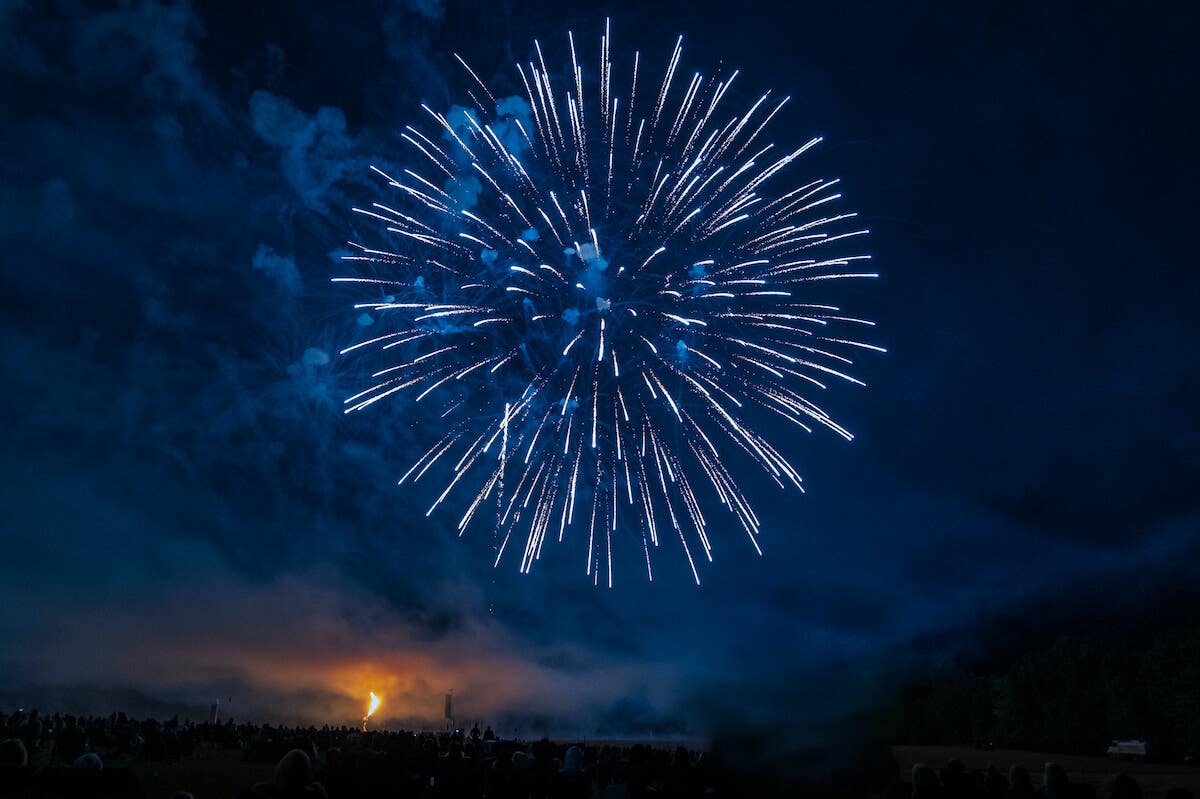Are you ready for the Fourth of July? Independence Day is right around the corner, and that means it’s time for backyard barbeques and amazing fireworks shows!
While you’re planning to celebrate the birth of our country, keep in mind that more people usually means more things can go wrong. But don’t worry﹘we’ve got your back. Take a look at our Fourth of July safety tips for your home to keep you and your loved ones safe.
Fireworks safety
The safest way to enjoy fireworks is to go to a local show run by your local government or another organization. If that’s your preference, then keep a distance of at least 500 feet from the show’s detonation center. Chances are organizers have already set a boundary to keep people safe.
For those who prefer setting off fireworks at home, your first step should be to check state law. Massachusetts is the only state that bans consumer fireworks entirely, but the rest all have regulations prohibiting various pyrotechnics for individuals.
If you are lighting your own legal fireworks, then follow these safety tips:
- Keep fireworks out of the hands of children.
- Always point fireworks away from people or animals.
- Keep a bucket of water, garden hose, or fire extinguisher on hand.
- Use eye protection if you are lighting fireworks.
- Never try to relight duds
Accidents can happen even when you try to be safe. Luckily, homeowners insurance covers fireworks damage in some situations.
Pet safety
You might love fireworks displays, but your furry friends may feel quite the opposite. In general, pets and fireworks don’t mix. The loud, sudden booms can hurt their ears or scare them, sometimes even to the point where they run away and get lost. For that reason alone, we recommend you don’t take pets to fireworks shows﹘including the backyard kind.
Your better option is to leave your pets at home in a safe, secure space, like their crate or an escape-proof room with some of their favorite chew toys. You may even want to sit and comfort them while the bulk of the fireworks goes off. If your pet is in your backyard, keep an eye on them and make sure there are no ways for them to escape.
Other Fourth of July safety tips for pets include keeping them away from:
- Hot grills.
- Pointy barbeque skewers.
- Charcoal.
- Table scraps. (Some foods are toxic to pets.)
- Sparklers.
- Glow sticks.
While we’re at it, remember to watch your pets for sun and heat exposure. Give them plenty of access to shade and cool water when they are outside. And, never leave your pet in your car because they can quickly overheat.
Water safety
Nothing beats spending a hot July 4th in the water, but time in a pool, lake, or ocean requires you to take some basic safety measures. For example, you want to:
-
Learn swimming and water survival skills.
-
Pay attention to the weather and get out of the water if you see the signs of a thunderstorm.
-
Listen to the lifeguard around, if there is one, and read any safety postings.
-
Supervise children and pets at all times.
-
Use U.S. Coast Guard-approved life jackets if you’re on a boat..
-
Make sure every swimmer has a buddy so no one swims alone.
-
Remember to drink water if it’s especially hot.
-
Avoid drinking alcohol while swimming or boating.
Remember, too, that pools are considered attractive nuisances that can easily draw the attention of minors who may not have the best judgment. Make sure you limit their ability to access your swimming pool with a fence.
Picnic safety
What’s the Fourth of July without picnics in the park and backyard barbeques? But it’s important to remember that hot temperatures mean some certain foods will spoil quickly if left out. To avoid foodborne illnesses, you can:
- Wash your hands before you handle or prepare food.
- Keep perishable foods in a cooler with a lot of ice.
- Fill the cooler up. (A full cooler stays cold longer.)
- Transport your cooler in the passenger seat of your car, not the trunk.
- Store your cooler in the shade or under a blanket.
- Cover food to prevent flies and other pests from landing on the food.
- Throw away food that has been sitting out for an hour or longer.
- Bring a food thermometer to make sure you cook foods to the proper temperature.
The food itself isn’t the only source of risk at a picnic. Bad grilling habits can cause fires, so you should also remember to:
- Only grill outdoors.
- Set your grill on a flat surface away from your house and any tree branches.
- Don’t throw starter fluid on already-ignited charcoal.
- Pay attention to your grill whenever it’s on and be sure to turn it off when you’re finished.
- Keep a spray bottle or fire extinguisher on hand.
Following these Fourth of July safety tips can help you and your family enjoy a fun, accident-free holiday. Stay safe, everybody!


